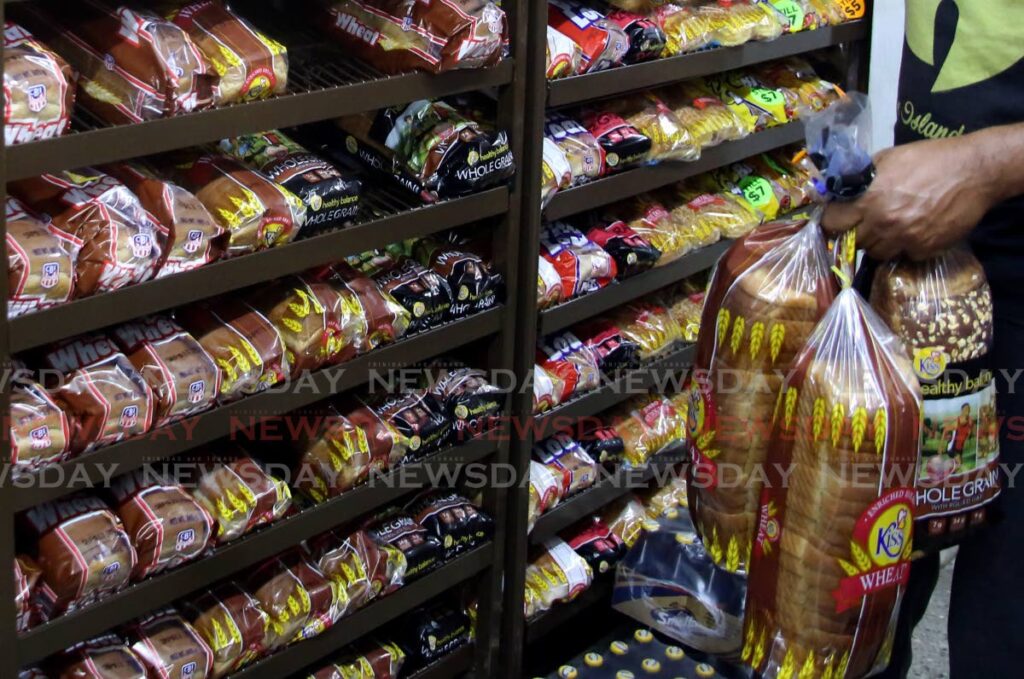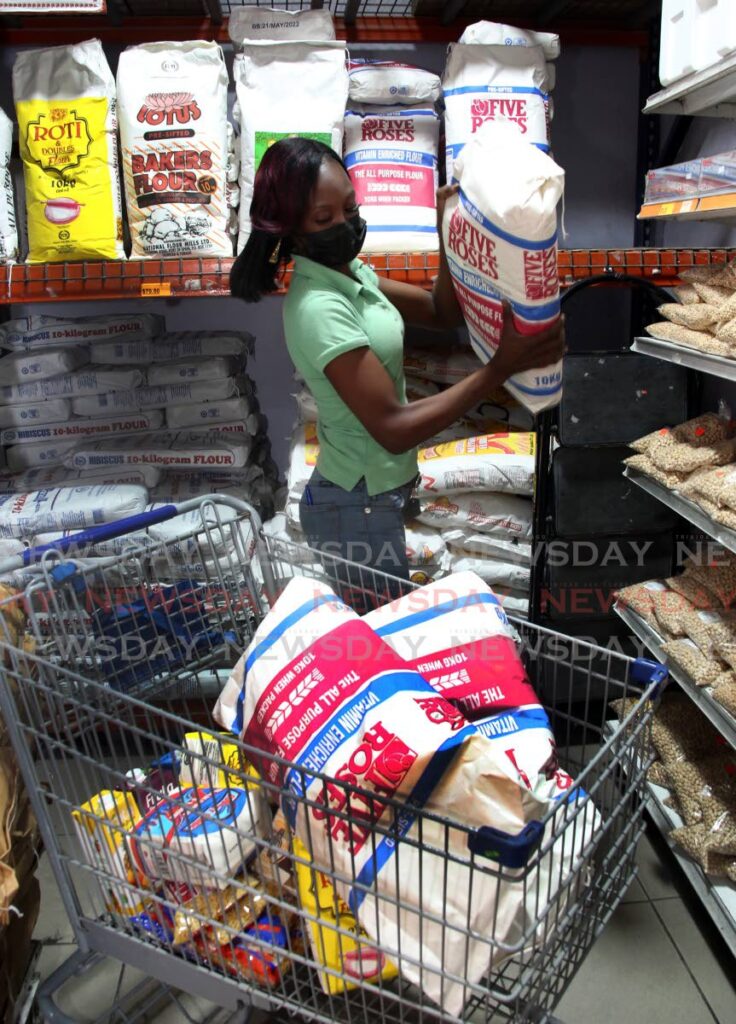Economist, private-sector heads predict slump for Trinidad and Tobago

Several heads of various sectors of the economy believe Trinidad and Tobago is in for significant declines in 2022, as the pandemic persists and uncertainty looms.
Their comments came after the Central Bank on Friday issued its final Monetary Policy Announcement (MPA) for 2021 which said there would be further increases in food and core inflation.
“Food inflation surged to 7.6 per cent from 5.8 per cent in September and is likely to rise further given the situation in the global grain markets,” it said.
The Central Bank pointed out that headline inflation in October moved to 3.9 per cent year-on-year when compared to 2.4 per cent in September. Core inflation, which excluded food, doubled to 2.9 per cent and the index of building material prices rose by 12.6 per cent during the third quarter of 2021.
Economist Dr Vaalmikki Arjoon told Sunday Newsday that the increase in wheat prices has started a chain reaction that would further exacerbate an already high cost of living.
Despite some food-processing importers and distributors sourcing suppliers in closer proximity, for instance from Latin America, Arjoon explained the supply-chain problems persisted because of demand-and-supply parameters globally.
He said, “Everyone, including business owners and their households, will be faced with this increased cost of living due to increased flour prices – they will again transfer this higher cost onto consumers, which will inflate prices even more – not just for items for which flour is used to produce, but also other consumables that are used daily.
“Supply-chain problems will possibly prolong at least until the latter part of 2022, despite some increases in factory production from Asia. Going forward, local manufacturers, especially food processors, should consider using hedging strategies, to lock in specific prices from suppliers of raw materials, such as agricultural commodities used in the food processing industry, etc, thereby protecting themselves from having to pay higher prices in future if there are further price increases on the global market.”
At the close of 2021, major flour suppliers, National Flour Mills and Nutrimix announced price increases, effective early January, which range from 10-22 per cent. This had the trickle-down effect of announcements from Kiss Baking Company and Linda's Bakery Ltd of impending increases in the prices of their bread products.

Price increases, Arjoon pointed out, will be compounded further by shortages caused by delays at major international ports, severe freight charges from China, higher black-market forex fees for importers who cannot access adequate forex from authorised dealers, higher energy prices and customs overtime and port rental charges.
He said the move by the US Federal Reserve to halt liquidity injections through bond purchases, which would likely increase interest rates next year, could also be harmful to TT.
“This will mean that investments in the US will provide a higher return, and encourage some capital flight from TT, where several entities will invest in US securities and assets to benefit from these higher returns.
“Although the Central Bank is maintaining the repo rate at 3.5 per cent, future rate hikes in the US may at some point cause the Central Bank to increase our repo rate to prevent some of this capital flight, but this could also push up interest on future loans from commercial banks, making it costlier to borrow.”
President of the Supermarket Association (SATT) Rajiv Diptee said the pandemic has left the Government with an element of uncertainty when planning, especially when charting expansive monetary policy coupled with economic recovery.
He said major territories such as the US and UK continued to experience deep inflation which has trickled down to smaller economies such as TT.
“The mechanism being used is the rise in interest rates with the commonly held view that money available at higher rates mean less borrowing, translating to less spending, thereby curbing demand and reducing prices over time.
“As businesses reopen and look to access the bag of budget goodies accessible and available from this year, it's really up to banks to work with their clients ,especially as several don't check certain boxes when it comes to audited accounts, etc,” Diptee said.
Food price inflation during a covid19 environment, he said, with the emergence of variants and vaccine hesitancy, was not going to be temporary, as major food producers not only incurred escalated costs of inventory and raw material, parts and machinery, but other factors beyond the price of inputs.
TT Chamber CEO Gabriel Faria said covid19 economic impacts have crippled micro, small and medium enterprises (MSME) and the self-employed, and despite the thrust towards recovery, a significant proportion continued to struggle.
“It is clear the crisis is far from over. Larger businesses, especially the financial sector with stronger balance sheets, cash and assets, have been able to sustain themselves.
“Other specific sectors, mostly food, beverage, pharmaceutical distribution and retail, have actually improved their performance, as consumers have been spending much less and focused on discretionary purchases such as essential items and health,” he said.
Faria pointed out that continued declines or softness in the economy were expected for the first six months of 2022, which would be influenced by vaccination levels and workplace vaccine mandates that would create some disruption in the supply of services, especially in the public sector.
Referring to an August 2021 Inter-American Development Bank quarterly bulletin, he said continued fiscal-balance deterioration places TT in worse position than before covid 19 and this was expected for another four years.
“In the case of Barbados and TT, this deterioration was in excess of eight percentage points of gross domestic product, and it could take years for a return to pre-crisis levels. For TT, fiscal balances are projected to remain worse than prior to covid19 through 2026. This forecast may deteriorate further with the recent increases in cases and deaths.
“I hope the government will take some action to provide some meaningful support to the vulnerable in our society, both the citizens and small businesses. This could include using funds from the Heritage and Stabilisation Fund – but there must be complete transparency on how this money is used, ideally with an external body made up of civil society and government with the appropriate fiscal oversight on the use of these funds,” Faria explained.
Additionally, he called for the mobilisation of excess liquidity through tax incentives for investment in the MSME sector which will provide capital and mentorship.
On Friday, the Finance Ministry issued a release reminding of tax-relief measures, several of which are directed to technology and digitisation, that took effect from January 1. They include for SMEs a five per cent reduction in tax rates for three years for companies whose core business is technology solutions and digitisation, and a tax holiday for the first five-year period to new SMEs listing on the Stock Exchange.
Among the measures for larger enterprises are a five per cent reduction in the tax rate for significant exporters of goods for three years, and a five per cent reduction in tax rate for the manufacturing sector for two years on qualifying projects.


Comments
"Economist, private-sector heads predict slump for Trinidad and Tobago"